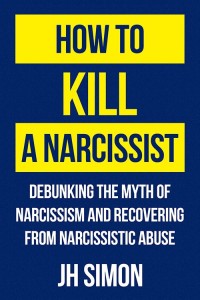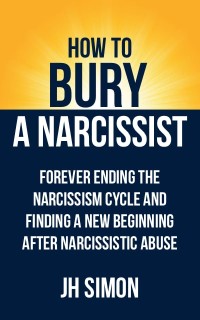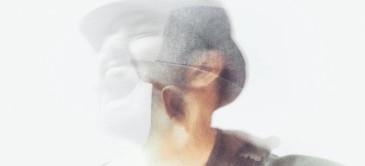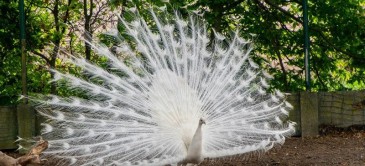Table Of Contents
From the obnoxious person at a social gathering, to meeting a narcissist while dating, to the manipulative ex who leaves you with lifetime scars, the term ‘narcissist’ is an umbrella term which can leave you asking: How can you spot a narcissist before it’s too late?
As many targets of narcissistic abuse can attest, this question often leads down a rabbit hole which challenges everything you thought you knew about people. Yet learning to recognise a narcissist early is a crucial skill in avoiding narcissistic abuse.
Ways to spot a narcissist are:
1. Watch The Things They Say
What the narcissist says can reveal their agenda, even when it seems like what they are saying is mundane or even nice.
Some phrases the narcissist uses and their hidden meanings are:
- I like you: Usually said very soon after they meet you. This only means that they feel they can draw narcissistic supply from you.
- I never…: This is followed by something which raises their perceived worth in the eyes of others. Examples are: ‘I never have to line up’, ‘I never fail a test’ or ‘I never get rejected’. Everyone lines up for things, occasionally fails tests, and gets rejected, so such statements only act as ways to put dents in your self-esteem.
- Why do you…?: ‘Why do you dress like that?’ ‘Why did you pick that colour?’ and so on. These phrases are intended to destabilise your sense of Self and make you question your decision-making.
- You’re cute: 2-year-olds are cute. This phrase only acts to remind you that you are submissive to the narcissist.
2. Identify The Forms They Take
Another characteristic of a narcissist is the tendency to adapt their behaviour depending on who they deal with.
To endear themselves to others, the narcissist needs to behave in a way which appeals to their target. The narcissist is an opportunist, and their role is spontaneous, coming about as required.
Narcissistic guises to watch out for are:
The Supportive Friend
The narcissist will listen attentively and agree wholeheartedly with what the target is saying. Regardless of what the target shares, the narcissist will be unconditional in their support and hearty in their praise. If the target complains about another person, the narcissist will be fierce in their mutual condemnation.
The Fun Friend
The narcissist will joke and laugh with their target, generally at the expense of someone else. Because it is all in the name of fun, the target will usually not object. This dynamic creates a feeling of being ‘buddies’ who have a great friendship.
The Wise Orator
The narcissist will speak passionately and confidently, exhibiting their alleged strength and knowledge, which gives them an air of authority and compels their target to pay attention, hoping to be enlightened by this alleged high-status figure.
The Victim
The narcissist will express how difficult things are for them or how life has dealt them terrible misfortune. The target then feels compelled to empathise and invest in the narcissist’s ‘problem.’
Many people like to problem-solve because it feels good to have a challenge, or because problem-solving helps distract them from the difficulties of their own life.
When the narcissist plays the victim, the target will not only empathise, but also propose solutions for the problem. The narcissist usually brushes off these suggestions and instead keeps the focus on their alleged misfortune.
The narcissist will mix and match the above roles, shifting shape depending on the person. All of these guises are intended to disarm the target by giving them an ego boost.
3. Spot Their Traits
Narcissists are known to triangulate, gaslight and scapegoat. Another classic trait of the narcissist is their tendency to idealize, devalue and discard their target. However, some surface-level signs of a narcissist to look for are:
Intense, Unflinching Eye Contact
The narcissist’s pupils contract and dilate in unnatural ways, almost hypnotising you. There is just something off about them.
At first, the narcissist pays you total attention (pupil dilates), which makes you feel valued. They then ‘zone out’ at a random time (pupil contracts), often when you are the most engaged and open to them. This forces you to become self-conscious and more desperate to regain their favour.
This power play is subtle but extremely powerful, allowing the narcissist to keep you on a string. With just a look, they can take you on a ride between exhilaration, shame, doubt and everything in between.
Interest Faking
The narcissist pays attention to your interests, and will randomly mention without proof that they too are into such things. You are a vegan? One day they slip in that they had a vegan dinner. Do you like to go jogging in the evenings? They went for a jog last night. And so on.
These bits of information are simply peppered into the conversation without any further detail or show of enthusiasm. The goal is to get deep inside you, to the place where you value life, the place where you can most be influenced and manipulated.
The Cliff Drop
Whenever we converse with people, we inject a decent amount of energy into the interaction to bring enough momentum and value to it.
A narcissist will begin a conversation with you, and just as your enthusiasm for a topic grows, will suddenly disengage. They will use uninterested eye contact, will become engrossed by something in the distance, or they might snicker and just wait with eyebrows raised.
Once you sense they have checked out, you get extremely self-conscious and walk away with a burning sense of shame.
If you are not careful, you might internalise this as a sign of you being stupid or annoying, which over the long term can damage your self-esteem. Learning to spot a narcissist’s use of the cliff drop can save you a lot of pain.
Invitation Bombing
Invitation bombing is another sign of a narcissist. Invitation after invitation to do something, even if you have no interest in the activity.
If you say no, the narcissist remains unfazed, presenting another option later on. Most of these things never come to fruition; they just create the illusion that you are close and that you do things together, or rather, could potentially do things.
The narcissist is also testing your boundary-setting with their invitation bombing. Do you seriously entertain every invitation? Do you politely say no? Do you outright say no? Or do you say yes every time because you desperately need company?
To Spot A Narcissist, Instinct Is King
Above all, it is important to recognise the narcissist’s manipulations in the flow of the relationship.
Because we naturally expect that others will treat us as they want to be treated (the golden rule), we brush away our doubt, hoping to maintain the relationship momentum.
We all want to believe in the best of people, and to give our budding union the best chance of succeeding. Being an empathic human being with healthy shame, you try not to judge people too soon. Meanwhile, the damage is being done, and it is not until you are spat out that the full weight of what happened hits you.
In every relationship, you should trust the other person but verify their intentions. We all make mistakes in how we treat others, but usually these slip-ups are accompanied by obvious reasons (a bad mood, fatigue, a blind spot in a person’s social intelligence, etc..).
Judge based on your inner radar. If things feel off, that’s because they probably are, and there is a reason for it.














